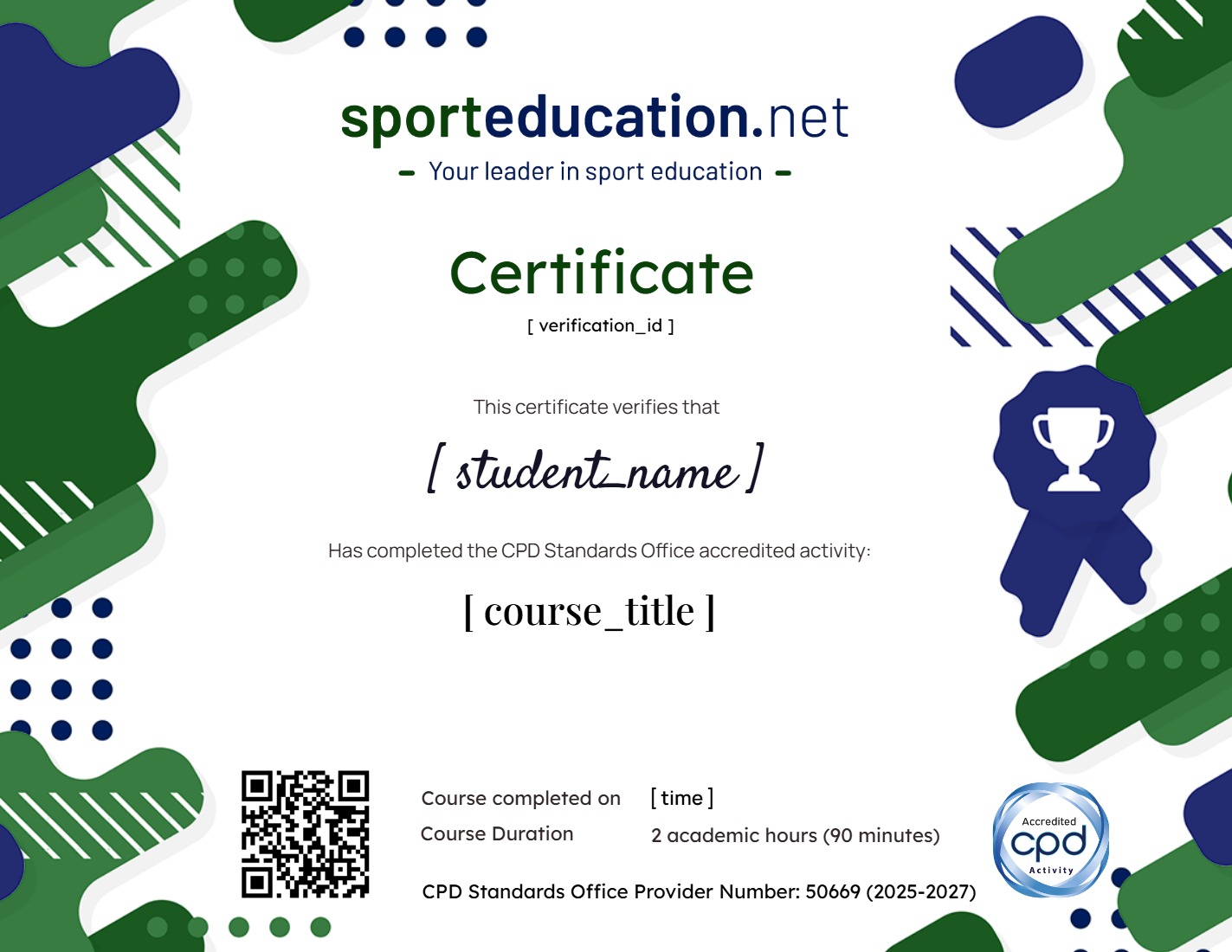About the Course
This session addresses stress and performance anxiety, combining theory with practical tools athletes use to excel under pressure. We’ll examine arousal theory—including the inverted U hypothesis and Individual Zones of Optimal Functioning (IZOF)—to understand how different levels of stress influence performance. Building on this, you’ll learn coping strategies such as breathing routines, progressive muscle relaxation, and mental rehearsal to reduce anxiety and prevent “choking.” We’ll also explore conscious processing and attentional control theories to explain why pressure can disrupt automatic performance, and how athletes can build resilience through training.
Course Content
Managing Stress and Pressure
Lesson: Managing Stress and Pressure
01:30:08Quiz: Managing Stress and Pressure
Earn a certificate
Add this certificate to your resume to demonstrate your skills & increase your chances of getting noticed.

Student Ratings & Reviews
